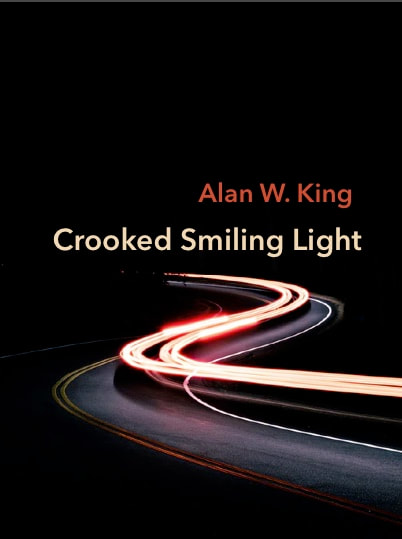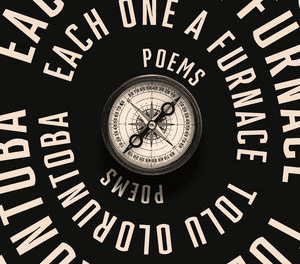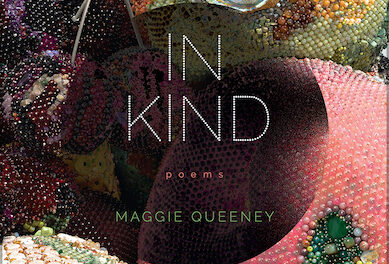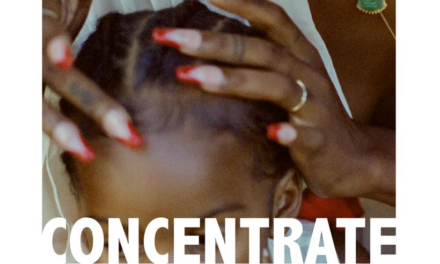
Associate Editor Taylor Byas: Alan King’s chapbook Crooked Smiling Light (Plan B Press, 2021) begins, quite literally, in blows. In the opening poem, “In Your Dream,” King’s speaker finally has the agency to fight back against his condescending and verbally abusive father. Right away, we are introduced to a particular Black male societal script, one that teaches Black men to be violent and angry, that insists that Black boys and men are never truly safe or loved. The poem begins, “you bob your father’s jab before / your right hook drops him. Before you trip him up / when he runs for the gun—the one he said / he’d blow you away with if you ever hit him.” King illustrates how the Black man’s earliest threats often come from his father. Violence, King argues, is something Black men must inherit to survive even their own blood.
But this inheritance isn’t just familial. Throughout the collection, King makes multiple Biblical and mythical references to demonstrate how violence is woven into the fabric of our history, into the narratives we use to explain this world. At the close of “In Your Dream,” the speaker knocks his father on the floor and compares the moment of looking down on him to “how Zeus must’ve felt / surviving his father’s appetite / and jailing him to the underworld.” In the poem “Counter Punching,” King writes about the “science” of fighting:
It was muscle and tendon
in a tango of attack and retreat,
breath control and patience,
you pacing yourself over a match
that took four decades of your life.//
So you centered yourself
with the weight
of a sleeping person,even as Goliath swaggered
through the streets—
Although the Biblical story of David and Goliath is often presented as a story of triumph, King reminds us that Goliath’s violence simply produced another violent act. Even this narrative insists that violence is the only thing that can cancel itself out.
But King peels back another layer of the Black male experience, displays the complicated position of fielding the world’s brutality while anxiously preparing to become a father. Faced with his own father’s shortcomings, the speaker longs to break the cycle and pass down something other than violence. In one of my favorite poems in the collection, the speaker directly addresses his unborn child. King writes:
Now, your mom’s a lamp
whose light comes from your kicks
and punches, from watching the star
in your chest flash on the ultrasound,
from your persistence to enter our life.If there’s one thing waiting taught us,
it’s that patience is the currency
of anything worth having.So I rub your mom’s tummy to
feel your elbow, then your first—
grateful for the light inside.
King brilliantly foreshadows the child’s inclination toward violence, already elbowing and punching within the mother’s womb. And yet the speaker chooses to meet it with patience and gratitude, with the tenderness he himself was never afforded. King proposes an antidote to the societal and familial curse—revising the story already written for our lives, choosing to match violence with love instead.
Dr. Taylor Byas, Ph.D.,(she/her) is a Black Chicago native currently living in Cincinnati, Ohio, where she is a Yates scholar at the University of Cincinnati, an assistant features editor for The Rumpus, and a poetry acquisitions editor for Variant Literature. She is the author of the chapbook Bloodwarm from Variant Literature, a second chapbook, Shutter, from Madhouse Press, and her debut full-length, I Done Clicked My Heels Three Times, forthcoming from Soft Skull Press in August of 2023. She is also a co-editor of The Southern Poetry Anthology, Vol X: Alabama, forthcoming from Texas Review Press, and of Poemhood: Our Black Revival, a YA anthology on Black folklore from HarperCollins. She is represented by Rena Rossner of the Deborah Harris Agency.










